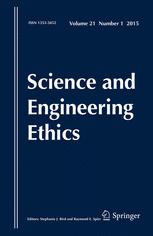 There are a number of fields that seem to punch above their weight on Retraction Watch: Anesthesiology, home to the world record holder (and runner-up), and psychology, home to Diederik Stapel and others. But the red-hot field of stem cell research is another that makes frequent appearances, last year’s STAP controversy being particularly prominent.
There are a number of fields that seem to punch above their weight on Retraction Watch: Anesthesiology, home to the world record holder (and runner-up), and psychology, home to Diederik Stapel and others. But the red-hot field of stem cell research is another that makes frequent appearances, last year’s STAP controversy being particularly prominent.
There’s an interesting (but unfortunately paywalled) recent paper in Science and Engineering Ethics, “The Acid Test for Biological Science: STAP Cells, Trust, and Replication,” by Cheryl Lancaster, a small part of which tries to answer that question.
Lancaster applies the same methods Fang, Steen, and Casadevall used to broadly measure the causes of retractions in all life science and biomedicine to the specific field of stem cell research: Continue reading Are retractions more frequent in stem cell research?





